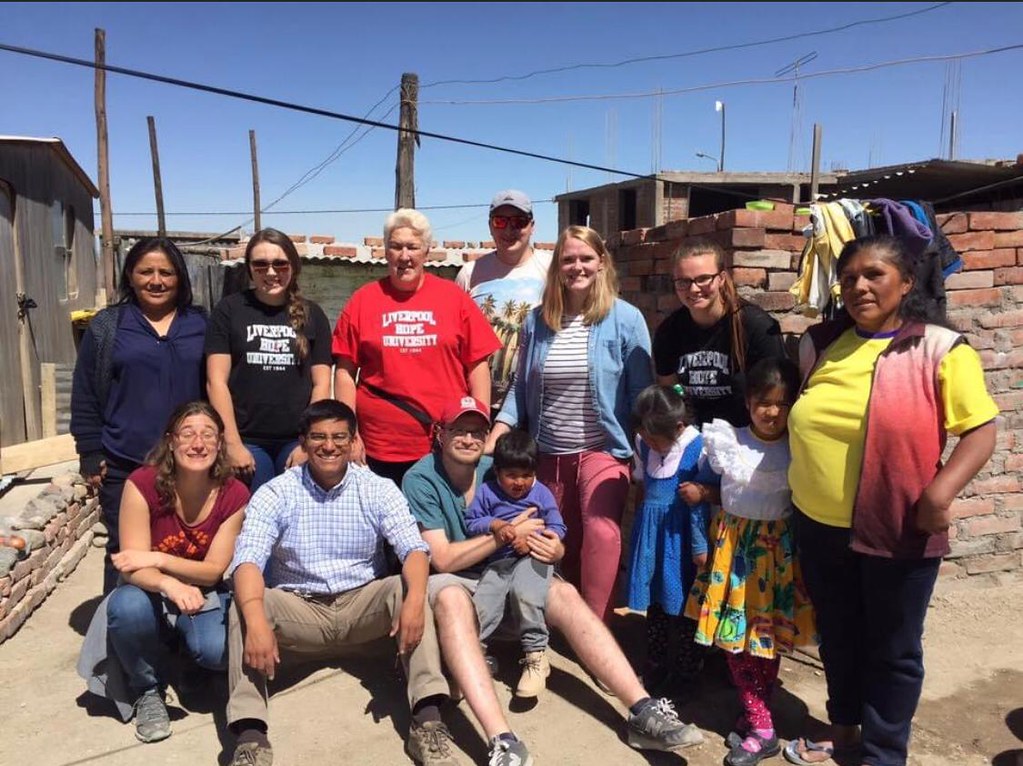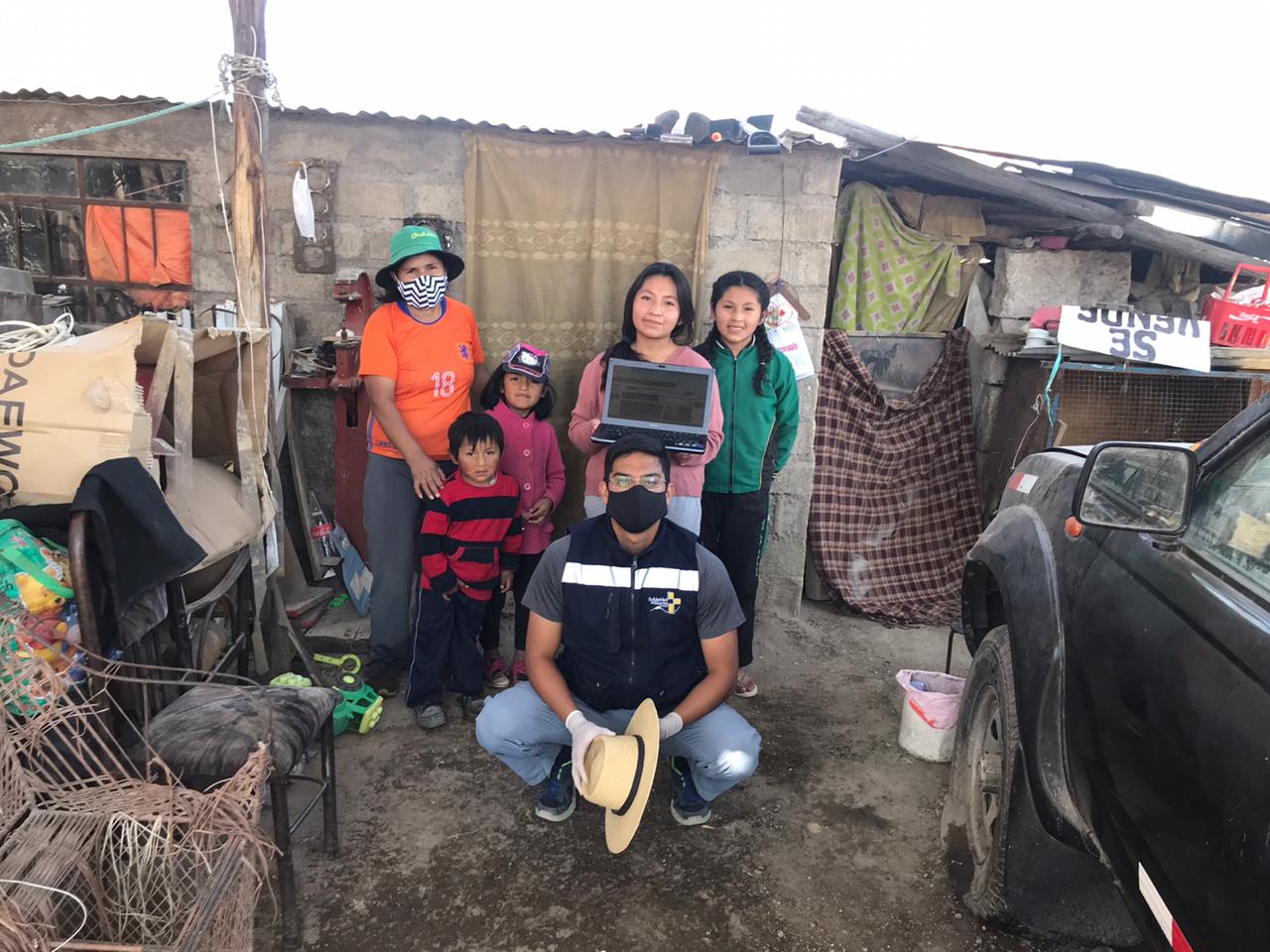A key partner of Liverpool Hope University’s Global Hope initiative has revealed how Covid-19 has impacted on its work with disadvantaged children.
And with the ramifications of the pandemic likely to be felt for some time to come, Global Hope is appealing for donations to aid its plight.
Global Hope represents the University’s international volunteering programme, which engages in projects addressing social injustice across the world.
One of those projects is ‘Solidaridad en Marcha Arequipa’, a charity initiative located in Peru’s second city and which has the highest levels of deprivation outside the capital Lima.
The Arequipa arm of Solidaridad en Marcha (SEM) is centred around three vital schools - ‘Our Lady of Solidarity’, which caters for children aged 2 to 5, ‘San Juan Apóstol’, which educates children aged 4 to 16, and the newly-founded ‘Our Lady of Alborada’, which currently has around 30 students.
Volunteers from Hope have been visiting San Juan Apóstol for the last three years, forging a close allegiance with the organisation.
Now Victor Ramos Herrera, Director of Education and Apostolate at SEM Arequipa, and himself a Religion and Ethics teacher, has described how the Coronavirus lockdown has had a devastating effect on the children in their care.
Victor told Hope: “The lockdown in Arequipa has been particularly tough, largely because the healthcare system has collapsed. Patients are sleeping in the street as we don’t have enough hospital beds.
“At San Juan Apóstol, we have 792 students at multiple levels, from kindergarten, to middle school, to high school.
“The school is in a shanty town in the poorest area of Arequipa. But because of the lockdown, it’s very difficult to now teach these children.
“Many of their parents - who worked as house builders, or in repairs, or who sold things - have lost their jobs. And without the schools being open, it’s impossible for single parents to go back to work if they do have a job.
“Our students often don’t have a good cell phone. Many don’t have the internet. We’re trying to teach children via Whatsapp, when a family with four or five kids have one cell phone between them.”

(Victor Ramos, pictured second from left on bottom row)
The children are missing the school for a whole host of reasons.
Victor says: “For a teacher, it’s so important to be near to your students. And it’s really difficult right now that we can’t see them.
“When I speak with them they tell me how much they miss the school and their teachers. And these children really need their school.
“Their houses are often just one room. They have to study, eat and sleep here. It’s difficult for them to study in these conditions right now.
“But at school they have good classrooms, wide spaces, bathrooms, they can eat.
“And it’s a good community, a strong community. We want to increase their skills so that they can be the best people they can be.”
Another key part of the SEM Arequipa’s work is the dining rooms they use to provide affordable food to the poorest people, catering for 150 people every day, Monday to Friday.
While SEM Arequipa is part-funded by the Government, Victor and his team rely on charitable partners to make up the shortfall.
Parents would also typically provide around $10 per month by way of support - in order that they can continue to pay teachers and staff, to provide food, to provide cell phones and laptops for students, and even to make sure there’s internet in students’ houses.
But Victor adds: “It’s now impossible for parents to find even that small amount. And we need to help.
“If the children aren’t connected to the internet during the lockdown, it’s impossible for us to teach them. That’s the reality.
“In Peru, poverty levels will increase over the next few months as it becomes more and more difficult for people to find jobs due to economic inactivity created by Covid-19.
“So it’s vital we’re able to continue helping the poorest people in society.”

Where Victor can’t connect with children electronically, he’s been sending education packs containing books, reading materials and weekly homework.
Meanwhile Victor is passionate about being able to provide laptops for students in their final year - because it’s essential these children are given all the help they need if they’re to lift themselves out of poverty through continued education.
Victor says: “For students in their final term, we’re giving them laptops.
“And then we’re able to connect with students through Google Meet and Google Classroom.
“We’re not going to see these students again face to face. Next year they’ll be going on to universities and other institutions, and we have to prepare them.
“If they want to go to a public university, they have to make a presentation and take an exam.
“If they want to go to a private university, it’s expensive for them. And we want to help them to have the best possible scores so they can go to public university - because it’s the only opportunity that they have.”
There are also scholarship opportunities available to students through a partnership between SEM Arequipa and local technical institute, the Instituto del Sur, for the best students.
Another key mission of SEM Arequipa is in the protection of elderly women who often find themselves living on the street because their poor families simply can’t care for them.
Staff find these women, place them in a special home, and support them.
Victor adds: “These grandmothers have nothing. They depend on what we can do, and what the community can do.
“We give them somewhere to stay, meals, check on their health, and as a Catholic organisation we give them spiritual assistance.”
** You can watch a short video about SEM Arequipa, click here.
*** To donate to Global Hope, head here.



